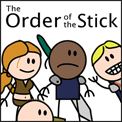Sane Scientists Need Not Apply
Not much of a game per se, but I know some of you will enjoy this game intended to help you learn about neurons: Make a Mad, Mad, Mad Neuron!
Labels: Education, Flash, Flash Game, Free Game, Game, science

|
Recent Posts | |||
|
"Your 'reality', sir, is lies and balderdash and I'm delighted to say that I have no grasp of it whatsoever." — Karl Friedrich Hieronymus, Freiherr von Münchhausen |
||||
Not much of a game per se, but I know some of you will enjoy this game intended to help you learn about neurons: Make a Mad, Mad, Mad Neuron!
Labels: Education, Flash, Flash Game, Free Game, Game, science
A high school senior in Alton, Illinois wrote this two weeks before he committed suicide:
He drew... the things inside that needed saying. Beautiful pictures he kept under his pillow.Everyone should go and read this article because this man is speaking the truth. It's a powerful and fascinating look at school as a tool of social indoctrination He's brilliant. Please, Miz Salem-Shadow and everybody read and comment.
When he started school he brought them...
To have along like a friend.
It was funny about school, he sat at a square brown desk Like all the other square brown desks... and his room Was a square brown room like all the other rooms, tight And close and stiff.
He hated to hold the pencil and chalk, his arms stiff
His feet flat on the floor, stiff, the teacher watching
And watching. She told him to wear a tie like
All the other boys, he said he didn't like them.
She said it didn't matter what he liked. After that the class drew.
He drew all yellow. It was the way he felt about Morning. The Teacher came and smiled, "What's this?
Why don't you draw something like Ken's drawing?"
After that his mother bought him a tie, and he always Drew airplanes and rocketships like everyone else.
He was square inside and brown and his hands were stiff. The things inside that needed saying didn't need it
Anymore, they had stopped pushing... crushed, stiff
Like everything else.
Labels: Education, Indoctrination, poetry
As reported by NPR and Gamasutra, there is a new high school opening in New York City with a curriculum focusing on designing video games.
And now the MacArthur Foundation has pledged $1.1 million to support this effort to reinvent education by redefining what it means to be literate. As explained in the NPR podcast, the idea of envisioning the world as the interplay of dynamic systems is something unique to life in the 21st century and requires new ways of preparing children for those challenges.Said Gamelab Institute of Play executive director Katie Salen, "We are conceiving the school as a dynamic learning system that takes its cues from the way games are designed, shared and played. All players in the school – teachers, students, parents and administrators – will be empowered to innovate using 21st century literacies that are native to games and design."
"This means learning to think about the world as a set of in interconnected systems that can be affected or changed through action and choice, the ability to navigate complex information networks, the power to build worlds and tell stories, to see collaboration in competition, and communicate across diverse social spaces. It means that students and teachers will engage in their own learning in powerful ways," she added.
—Gamasutra, "New NYC School to Promote 'Gaming Literacy'"
This is exciting news. The Internet has brought about fundamental changes in the way we think about and use information. In Google era, the fundamental question has shifted from "What is the answer?" to "How do I find it?" Today more than ever, we need to synthesize many different viewpoints and explore ideas through many different media.
Game design is all about understanding the implications of interconnected systems, and the built-in motivational power of a game system can be just the sort of shot in the arm that the educational system needs – especially here in New York. The school is set to open after a two year incubation and planning period. This is an exciting project, and one I hope creates a new way of looking at both games and education.
Labels: Education, Game Politics, Games in Education, New York
Raph Koster pointed out this article on BBC News, entitled "Computer game to boost key skills" (emphasis mine):
While this particular incidence may be unusually effective and not necessarily indicative of the power of edu-tainment in general, as anecdotal evidence, this is huge.Computer science teachers at West Nottinghamshire College were struggling to get their teenage students into literacy and numeracy classes.
So they took apart Atari's popular computer game Neverwinter Nights and rebuilt it with educational challenges the player must meet to progress.
Success rates in key skills at the Mansfield college has trebled to 94%.
[Nigel Oldman, one of the people who helped transform the game into a learning tool] said: "The little Herberts had realised that not attending their literacy and numeracy key skills classes was not going to affect their vocational qualifications."
"We would be flushing them out of the canteen, chasing them all over the place and they would just say: 'we did literacy and numeracy at school and we've never had to use it since'.
"We were struggling and we had had enough - so we decided we needed something that would attract them."
... [So,] "We ripped the game apart and rebuilt it to deliver educational content," he added.
Players are invited to pick a character and go on a quest in which they have to make decisions about what to take and how to progress using mathematics and their literacy skills.
Mr. Oldman explained: "For example, before they set off in their galleon they have to fill it with the things they are going to need. This requires them to work out the area of the ship and how much they can manage to bring.
"Some students managed it, others sank on the way and never progressed to the next level.
"They would come knocking on the staff room door and wouldn't let us go until we had taught them how to calculate area."
Educators often talk about a lack of motivation being one of the biggest obstacles to teaching. And games, after all, are nothing more than organized systems of incentives: if you want to "win the game", then you have to follow the rules. As Mr. Koster himself maintains, all games are educational. The reason they're compelling to the player is because he wants to figure it out, so he can get that feeling of triumph when he masters the system, beats his friend, unlocks the final level.
What I think is most interesting about this point is that it illustrates a number of key factors in maintaining the fun of a game while still achieving an educational goal. The way I see it, the Neverwinter Nights edu-mod succeeded because its creators made certain specific design choices.
First, this was a game the required math to advance. It was not a "math game". Many "educational" games are simply boring games wrapped around a series of math problems. There's not much fun in that. If the game itself is not compelling; if you finish the game and don't say "let's play again!" then it's just not a fun game, and its usefulness as an incentivizing factor disappears. The game in the article was based on a highly successful and well-polished, mass-market video game and then tailored to better suit an educational purpose.
Second, the educational goal of the mod's creators was achieved by putting it on a critical path to the in-game goals. Or, put another way, the story provided some goal (say, that the hero cross an ocean with all of the stuff he needs), and the player needed to use his math skills to figure out how to accomplish it (by figuring out the area of the ship's deck). The in-game goal was compelling enough to incentivize the player to perform this other task. From an in-game perspective, the math itself was a secondary goal, even though this was the designers' purpose all along.
I think this is a fascinating story. It would be interesting to determine whether other examples of particularly successful educational games follow this formula, as well. Please post suggestions in the comments if you know of any.
Labels: Education, Raph Koster

|


|